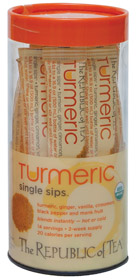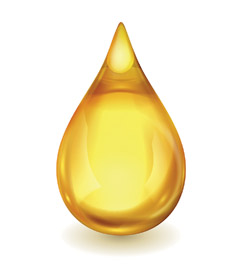
 Better Living Through Better Health
Better Living Through Better Health
DeAnna Batdorff and Scott Jenkins learned a lot during their time in India. The husband-wife duo founded the dhyana Center, an institution where DeAnna practices and teaches Ayurveda, and Scott creates tinctures, tonics and other made-to-order natural remedies at the apothecary bar.
“I started the center in New Mexico 23 years ago, but I only stayed there four years and then moved to Sebastopol and relocated the center there,” says Batdorff. “I started the center after falling in love with Scott. It has since become our world.”
Ayurveda is a medical practice, originating in India. It espouses the belief the human body corresponds with elemental theory in which the body is balanced with ether, air, fire, water and earth. Tracking symptoms, like feeling hot, dry, wet or cold, indicates a bodily imbalance with one or more of these elements. Batdorff practiced Ayurveda at the Bihar School of yoga, and earned her certification to practice and teach from her mentor, Dr. Lad at the Ayurvedic Institute .
“What many people don’t know is Ayurveda and yoga are two parts of the same practice,” says Jenkins. “They’re meant to complement each other.”
When Batdorff expressed a desire to help people in the U.S. through Ayurveda, her teacher in India named her business dhyana (a form of yoga used to help focus the mind on one particular task). The dhyana Center boasts a treatment center, a non-alcoholic apothecary bar, self care sanctuary (bathhouse and sauna), yoga studio and community classroom.
“Ultimately, this center is built on love,” says Batdorff. “It’s my love for Scott; my love to help and heal our community; it’s the backbone of this business.”
“About 10 years ago we decided to sell our house to create our downtown location,” adds Jenkins. “We were ready to share more of our offerings with the public, so we built the center to create a space that is fun and eclectic like us, yet peaceful and healthy at the same time. By doing that we have put every bit of energy and focus into the center, and we hope to empower all people who walk up the stairs to see it.”
www.dhyanacenter.com
 Drink Up!
Drink Up!
Turmeric is a culinary spice and a major ingredient in Indian curries that’s getting a lot of attention for its possible health benefits, and now it’s easier to get turmeric in your diet. The Republic of Tea in Novato recently launched two new, organic turmeric products that deliver a delectable mix of autumn spices such as vanilla, ginger and cinnamon, packed with health benefits and flavor.
The Turmeric Stackable Tin features a fusion of tea and spices, including turmeric, ginger and green tea, making it easy to sip your way to health. Turmeric Single Sips are individually packaged for convenience and contain premium, turmeric root powder, which can be mixed with water and enjoyed hot, cold or mixed into a smoothie, yogurt or oatmeal.
What inspired the turmeric products? “The Republic of Tea began innovating with turmeric in tea several years ago, first with the Organic Turmeric Ginger Green Tea,” says Kristina Richens, minister of commerce. Since then, we’ve created many turmeric options, she adds, as people have been looking for more ways to enjoy turmeric as a healthy choice.”
Both products are available at www.republicoftea.com
Sweet, Liquid Honey
 Honey has been consumed for thousands of years for its health benefits. During biblical times, King Solomon said, “My son, eat thou honey, for it is good.” The possible health benefits of consuming honey have also been documented in early Greek, Vedic and Islamic texts, and the healing benefits of honey were referred to by philosophers and scientists—such as Aristotle (384 to 322 B.C.) and Aristoxenus (320 B.C.)—in ancient times. Now, modern science is finding that many of the historical claims that honey can be used in medicine may indeed be true. Scientific studies show that honey has medicinal value in treating these ailments:
Honey has been consumed for thousands of years for its health benefits. During biblical times, King Solomon said, “My son, eat thou honey, for it is good.” The possible health benefits of consuming honey have also been documented in early Greek, Vedic and Islamic texts, and the healing benefits of honey were referred to by philosophers and scientists—such as Aristotle (384 to 322 B.C.) and Aristoxenus (320 B.C.)—in ancient times. Now, modern science is finding that many of the historical claims that honey can be used in medicine may indeed be true. Scientific studies show that honey has medicinal value in treating these ailments:
Acid reflux. Honey may be helpful in preventing gastroesophageal reflux, more commonly known as acid reflux.
Infantile gastroenteritis. Honey shortens the duration of bacterial diarrhea in infants and young children.
Healing wounds and burns. Some people have reported a positive outcome for using honey to treat wounds and burns.
Allergies. Some research suggests that honey may be useful in minimizing seasonal allergies.
Fighting infections. A study published in the journal Microbiology revealed that Manuka honey is effective in treating wound infections, and may even prevent them from developing in the first place.
Cold relief. The World Health Organization (WHO) and the American Academy of Pediatrics recommend honey as a natural cough remedy. And a study published in the journal Pediatrics found that honey may be the treatment of choice for cough and sleep difficulty for children.
www.medicalnewstoday.com



